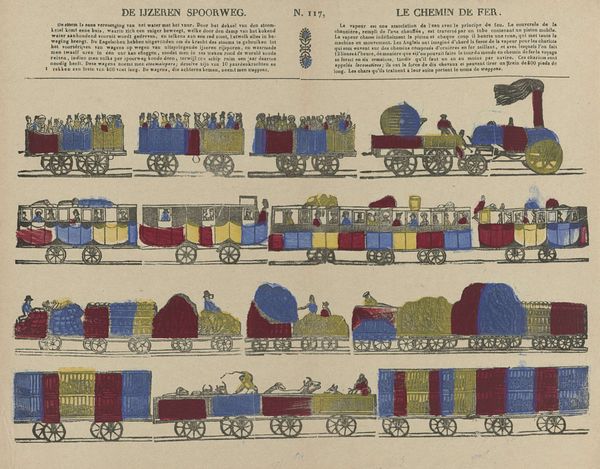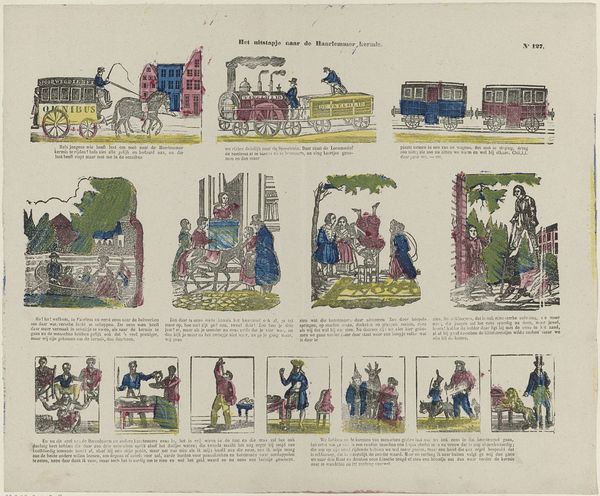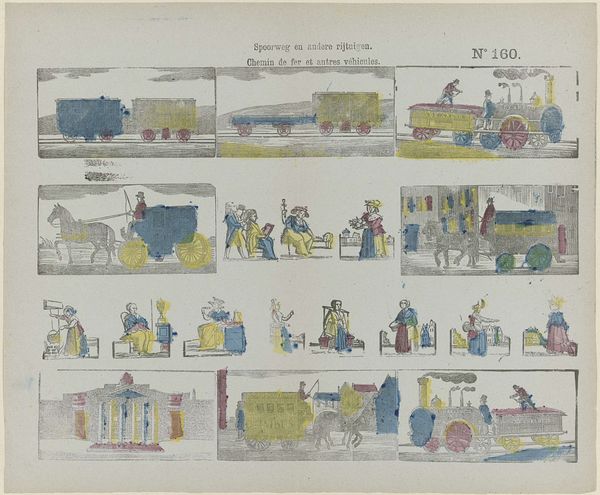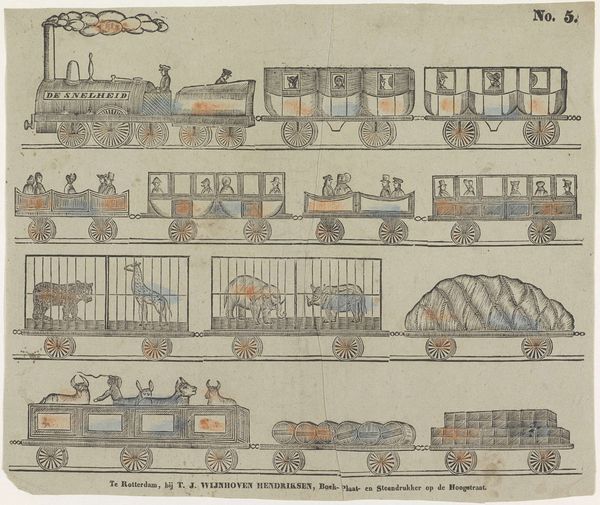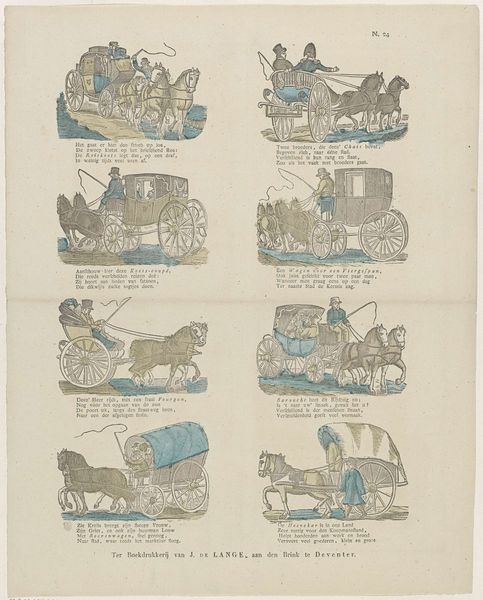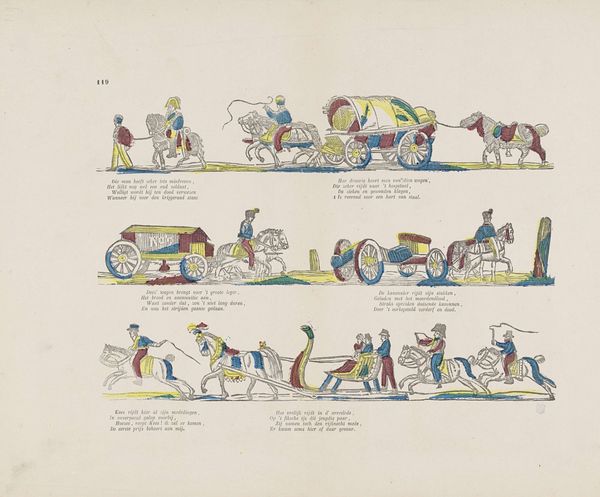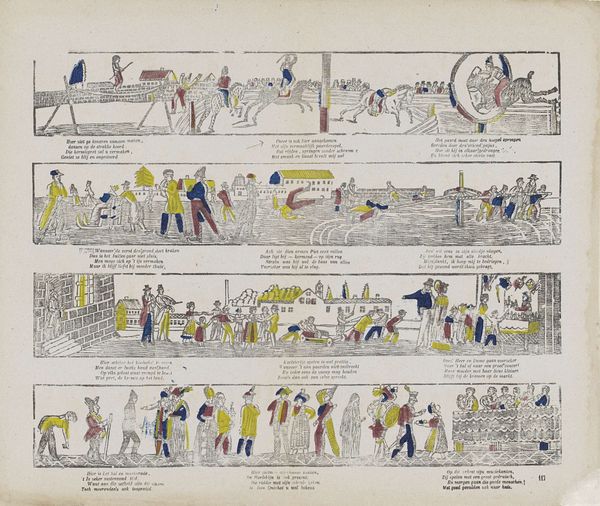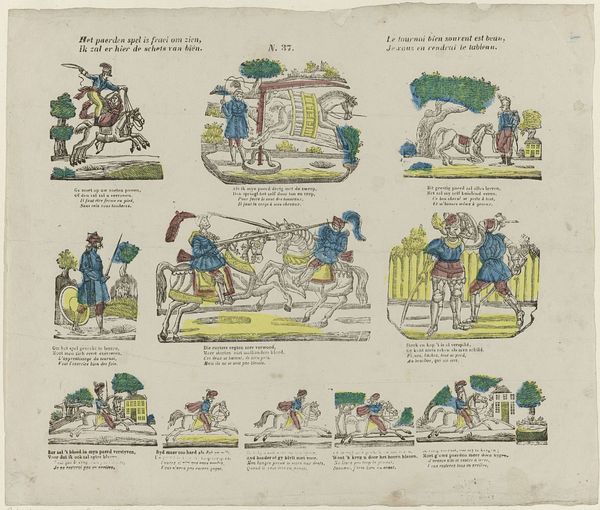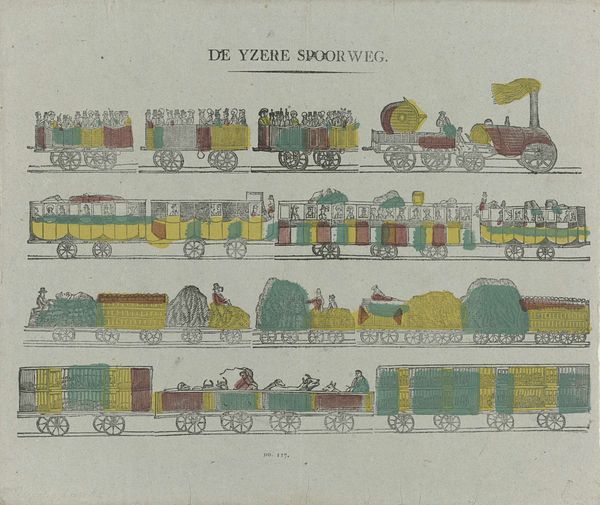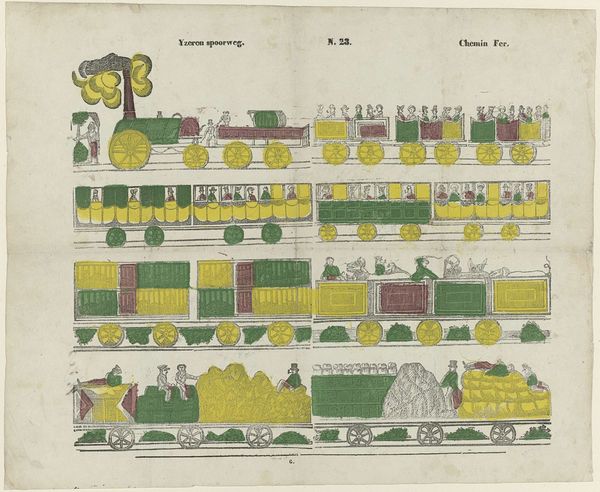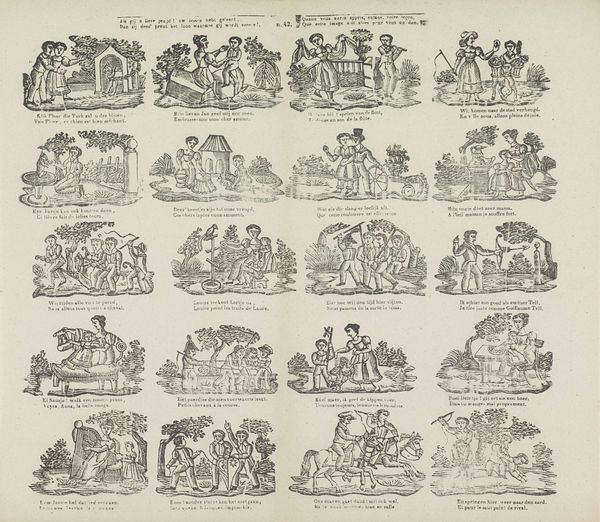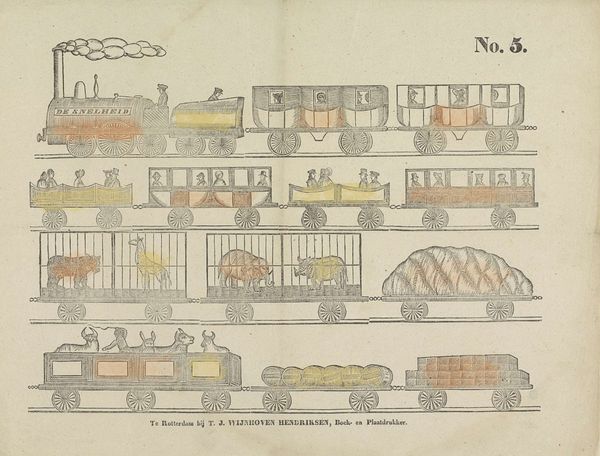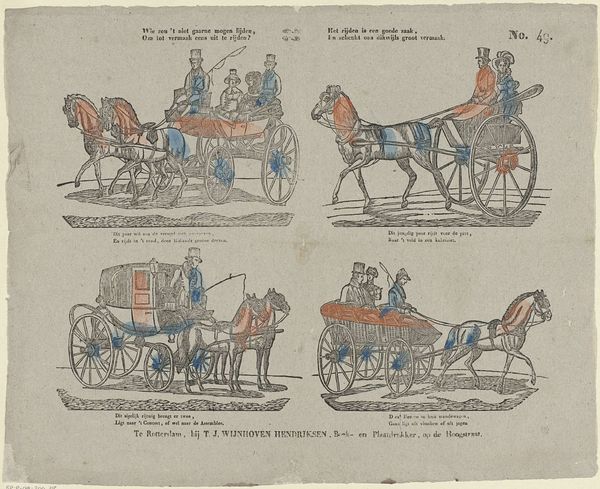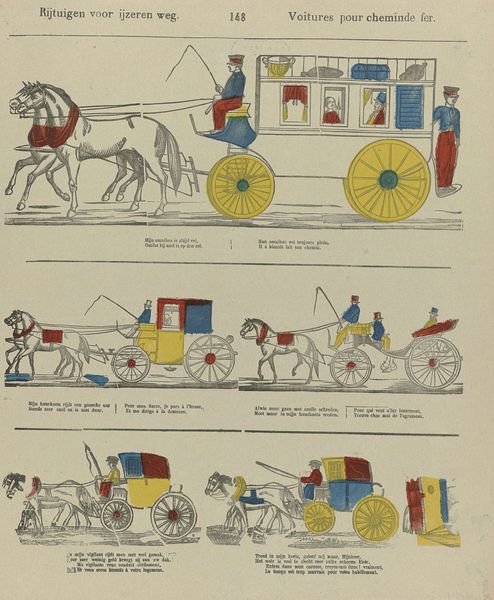
graphic-art, print, engraving
#
graphic-art
#
narrative-art
# print
#
landscape
#
romanticism
#
engraving
Dimensions: height 325 mm, width 426 mm
Copyright: Rijks Museum: Open Domain
Curator: I focus on the way art reflects economic and material conditions. Let’s see what emerges! Editor: This is an interesting print – "De ijzeren spoorweg / Le chemin de fer", which translates to "The Iron Railway," created by Philippus Jacobus Brepols sometime between 1800 and 1833. It is an engraving. The repeating carriages feel playful, but there's a stark industrial quality because of the railway theme. What do you make of its focus on the railroad? Curator: The focus on the railroad speaks volumes. Engravings were, at this point, a relatively inexpensive form of mass production and information dissemination. Here we have the artist reproducing the image of emerging industrialization and distribution systems. Consider the labor involved: the engraver painstakingly recreating the train. What message do you think this transmits? Editor: It is interesting to frame the railroad not just as a sign of industrial progress, but of emerging consumerism, by documenting not only industrial innovations but also labor practices, like engraving and reproduction? Curator: Precisely. It invites us to analyze the artist’s material choices and processes alongside those used in building and operating railways. Romanticism often idealized nature. How do we reconcile this artwork belonging to the movement? Editor: I had thought Romanticism only about nature, so this industrial theme throws me off. It seems this image focuses more on society's effects. Is there another layer that involves economics perhaps? Curator: Yes. It underscores a shift. What’s being consumed and commodified? Space, distance, time… think of the raw materials required for those tracks, for the steam engine. It's all connected! I've also gained a deeper appreciation of it as an early commentary on consumer society. Editor: I now realize it's not just about technological advancement, but how those technologies reshape work and commerce. Thank you.
Comments
No comments
Be the first to comment and join the conversation on the ultimate creative platform.
